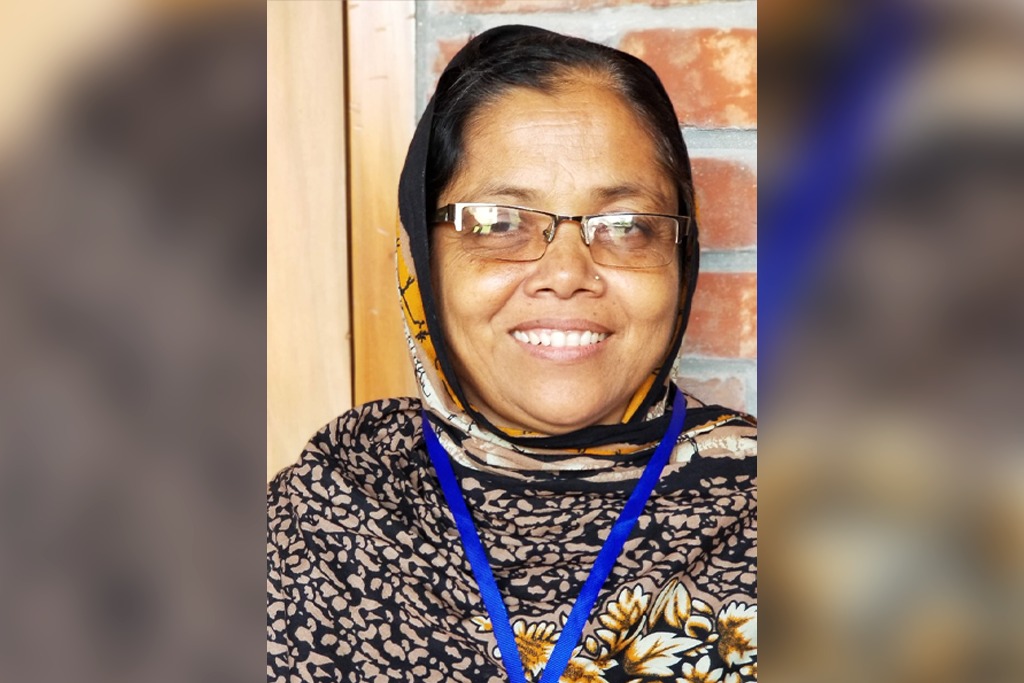For 19 years, I worked in an NGO in Jessore. My husband was into the seed and flower business. From time to time, I used to work with my husband as a helping hand. In 2006, the project I was working on came to an end and I was assigned to take on another project in Dinajpur. When my transfer notice came, my mother-in-law was gravely sick. She used to live with us and if I moved, there would be no one to take care of her. I left the job and took over the seed business. Thus, my entrepreneurial journey began.
In the beginning, people in my area were skeptical about a woman involving herself in the seed business. They thought women were unable to take care of seeds properly. Religious superstitions made them hold a bias against women’s capacity. Funny thing is, the people who used to talk against me, later became my loyal customers. Once they realized the quality of my products, they recognized my hard work. Now they praise me for running my business.
Initially, we invested 7-8 lacs Taka, in our business. My seeds are sold in Jessore, Dumuria, Satkhira and a few other towns in Khulna. Among different types of seeds, paddy seeds are sold the most. Since rice is the most important food crop in our country, paddy seeds are never out of demand. However, the popularity of a particular seed type depends on local market demands and it changes from time to time.
The journey was not always smooth. In 2009, we faced immense losses in selling seed potatoes. The market was down and 1500 sacks of seed potatoes were unsold. It took a heavy toll on our pockets and we stopped selling seed potatoes after that incident. In 2011, we invested in Biri-50 (bashmoti) seeds. We had 10 tons of seeds unsold due to poor germination and incurred heavy losses. My business had to go through a lot of uncertainties like these, but we came back stronger every time.
In seed farming, challenges are abundant. Access to finance remains a constant issue in this sector. To capture a big enough market, a lot of money is required. Sometimes the germination related problems occur and turn out to be devastating. Moreover, the business is seasonal. It requires significant willpower to have the patience to overcome a loss.
Apart from seeds, we used to sell flowers too. During the pandemic, the flower business has been totally disrupted. We haven’t sold a single flower since 2019. Due to the cyclone Amphan, the infrastructure for my flower farming was also harmed. Overall, my business witnessed losses worth 8 lacs Taka. To recover from this, I took a loan of 2 lacs Taka from the bank. During the cultivation season, farmers bought seeds no matter what. Hence, the seed business was relatively less affected amidst the lockdown.
Owing to my involvement in the seed business, I was engaged with the Flood Control Drainage and Irrigation project (FCDI) as a women entrepreneur. I learned about LightCastle Partners from them and joined their training program in 2019. From that program, I learned about different ways to collect investments and create market opportunities. The knowledge helped me keep hope in these trying times. At this moment, I’m looking forward to selling my seeds in October. Hopefully, we will overcome the losses and make a good comeback this year.
I aspire to expand my business and set up a seed factory in future so that my products reach every district of the country. A factory would also create employment opportunities for people interested in this field. There are fewer women entrepreneurs in the agribusiness sector and I would love to inspire other women to join. The dream remains far from reality as it would require minimum investments of one crore Taka. However, I am willing to go the extra mile to turn my dreams into reality.

